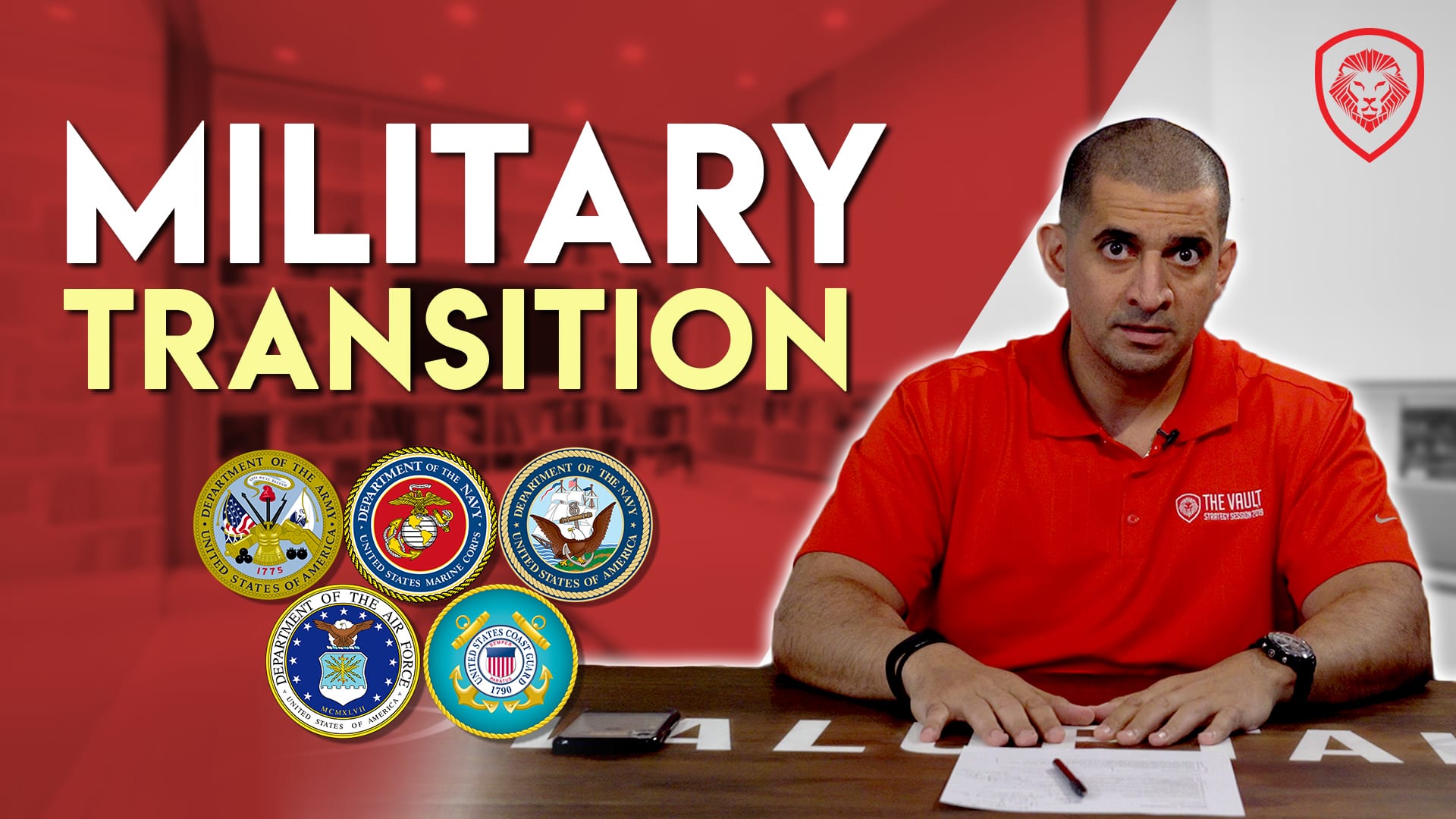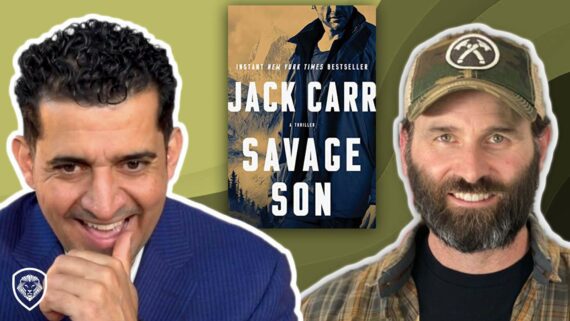TRANSITIONING FROM THE MILITARY
I want to talk to two different groups of people One are the employers, the CEOs, founders. One group is those who would like to hire Veterans, former Military folks, Army, Air Force, Navy, Marines, but you don’t necessarily know how to connect with them and you don’t know a lot of their challenges they face when they transition from military to civilian life.
The second group of people that I’m talking to are the actual Veterans. You may be watching this saying Pat: I’m about to ETS a month from now, six months from now, 12 months from now and I have no idea what I want to do. I keep going to different things, but I honestly don’t have any clue what’s going to happen. I am absolutely concerned. Today we are going to talk about the transitions, what challenges you’ll face when you make your transition and some tips to give you an edge while transitioning from military to civilian life.
SOME RULES TO CONSIDER WHEN TRANSITIONING
I was at the 101st Airborne Division and I personally know what it is to go from military to civilian and I want to share some tips on what you can do to make your transition from military to civilian smoother. I will share a few rules for you to know and learn from
- Civilians Are Not The Enemy
Those leaving the military tend to look down to civilians sometimes because it seems like they don’t work as hard as we do. Why? They don’t put their life on the line. You’ll say things such as: Do you realize what we do? This leads to a lack of respect in the workplace for supervisors and if you don’t respect and if you don’t respect the boss or somebody you’re working as a supervisor, you’re going to have a hard time working with them and they’re going to feel it and you’re going to feel it.
- Things Get Weird When You’re Married
If you are married, things get a little bit weird when you leave the military. When you’re in the military, you’ve got formation are already in the morning. You know you’re working until late at night. A lot of times you may be at the motor pool or the office or s one or whatever you’re doing, you’re going to stay there late. Then on the weekends you may have to go to the field. Sometimes you’re being deployed so you don’t, you may not see your spouse, your wife, or your husband regularly.
When you get out in the civilian world, you’re going to see them pretty much every day and that part may be good and bad. But initially it’s exciting. And then eventually it’s a little bit annoying and it’s kind of like your wife may want you to leave and go get a job or do something. Your husband may leave and go out and do something. I know this sounds like a strange analogy. It’s like what happens when an NFL or an NBA athlete is done playing professional for 10 years and all of a sudden they’re transitioning into a regular life because now their wife is there all the time.
So as you’re transitioning and if you’re married, things are gonna get a little weird, give it three, six, 12 months. Eventually things will smooth out. Don’t overreact and make a sudden decision for yourself. Give it 12 months, it’s going to get smoother.
- Don’t Get Married Too Early
This one is for single folks. If you’re single, not married, don’t even think about getting married. If you’re still in the military, transitioning out, take your time. There is no hurry out there to get married. I know a lot of people are going to tell you, look again, this is my opinion, you may not have to listen to me. Some other people, I may give you a different argument, but there is this, you know, stereotype that military folks get out where they meet a girl, they don’t use a condom, they get her pregnant, then they get married, then they realize marriage doesn’t work. Then they get deployed and then they get divorced and they get a DUI. Then they get out of the Army or the Marines or whatever it may be. If you can figure out a way to minimize that, do so, so don’t get emotional when you’re by yourself and just because you meet somebody, you decide to get married cause all your problems are going to be solved; they’re not.
- Don’t Be Macho
Let me explain to what I mean by don’t mean macho. Look, this is coming from a guy that most people that know me will tell you I’m an “a type” personality type. Latinos may call me a Machista because it’s Patrick with David. Sometimes when you get out of the military or you’re in about to transition out and you were deployed, okay, I’ve had good friends who were deployed and they came back and you still got things you’re dealing with. You saw stuff for years. It’s tough for you, right? Don’t set it aside. Go talk to somebody. Go find a counselor. Go find another Sargeant or an Officer that’s willing to listen. There are many of those counselors now. They speak to somebody before you get out because if you hang on to it and then you get out, what are you going to do? Come talk to civilians and explain your pain. Not everyone’s going to understand you. You May as well take advantage of whatever the military offers you right now to talk to them before you leave, but the one thing you definitely cannot do is just try to internalize it because sometimes imploding is worse than exploding.
It’s better to explode in front of somebody and cry and say, I don’t know what to do. I saw what happened in war. It was emotional. I lost a buddy…that’s 10 times better than imploding because this can have ramifications on everybody around you, including yourself. Go Talk to a counselor about issues that you’re having with PTSD and any of that stuff. Don’t think it’s embarrassing to talk about it. It’s a real issue. Go talk to someone about it.
- There’s Going To Be A Few Things You’re Going To Need To Unlearn
Let me explain. In the military we have many formalities such as “yes, sir. Yes ma’am” and we do it all the time. In the military that’s normal, not in civilian life for daily use. It’s kind of uncomfortable for some civilians to constantly hear that. The other one is acronyms. The military is filled with acronyms.
The average person, civilian person doesn’t understand what you’re talking about. Maybe the military does, but the average person does not. For example you’ll ask: “Hey, what time do you need me here”? They’ll say, 5pm – you’ll respond with – 1700? Ok I’ll be here at 1700. No, not 1700 – five o’clock in the afternoon. Okay, great. You know, I’ll get off at seven o’clock this afternoon. Not 1900. That jargon is confusing for civilians.
I probably dropped the F bomb, I don’t know…500 times a day in the military on any given day. When I got out, I worked at bally total fitness. There was a guy named Fernando there and one day he sits me down, says Patrick, do you realize how much you curse? So what are you talking about?
He says, every adjective of yours is bad. It’s so much that you kind of scare some people a little bit. You may want to kind of bring it down a little bit and change some of the cursing, and this guy was a friend. He ended up being one of my groomsmen at my wedding, but he kind of gave me, that heads up, I’m like, you know what? That part makes sense. Okay, fair enough. I’ll consider that.
- One Foot In, One Foot Out.
So sometimes when you’re out, you’re in the civilian world, you’re not really out in the back of your mind. You’re like, if this doesn’t work in the next three months, guess what? I’m going to re-enlist. Okay. So for me, I said, I’m going to try this, but I’m going to realize, but we don’t talk about this to everybody, but we think about it in the back of the mind. Why? Because the military is an area we are used to and the schedule is something we are used to. The Chow Hall, running PT, you know, go to a formation again, you know, barracks coming out to the field, MRE, PX, all these things. It’s like you’re used to it. And we like it because it’s trust. It’s predictable, there’s a routine. Someone’s telling you what to do and it creates a lot of comfort and trust.
I fully understand that part, right? But if you come out and you have dreams and you want to pursue them and one foot is back into one of re-enlist and you’re doing that, it isn’t going to happen.
If you’re coming out, you’ve got to come out and make it work. Don’t look back. You made a decision to get out. Make it work. No more looking back, look forward on what you can do next. It won’t be easy the first three, six 12 months, but many have done it.
- Lack Of Finances
Let’s talk about finances here. So sometimes when you are about to ETS, there’s going to be so many more parties. You’ll be like this is great. I’m drinking, I’m having so much fun. And you get up and you’re broke and if you’re broke, you panic even more when you’re trying to get a job. Let me give you a tip. Go to fewer drinking parties, fewer cases, fewer six packs, fewer Jack, Jim bottles, whatever you want to call all of that Tequila. Instead find ways you can save money. Because when you get out, the fact that you have a cushion will make you make a better decision maker in your next career than one that’s desperate. A little bit of savings helps you make a better decision on which career side to go on.
- Don’t Go On Disability Just Because Everybody Tells You To Go On Disability
This one’s a little bit controversial. Some of you are going to agree, some of you, you’re going to disagree with. I have friends who get disability for the debt for the rest of their lives. Guess for what reasons? Because they were deployed for six, eight years and it totally had an impact on their lives and they served 20 years fine. Absolutely. That person deserves that because they sacrificed 20 years of their life, but there’s too many people that are trying to work the system. Here’s why I discourage you from doing that. Let me explain to you why. The reason why I discourage you from doing that, it’s not because you’re stealing money from the government. It messes with your character and messes with your psyche. How are you going to go out there and also build a business or go become successful in the company when you’re getting disability that you don’t deserve? If that is unaligned, the problem is in your mind, not out there.
HOW TO MAKE THE TRANSITION EFFECTIVE
- Keep In Touch With Those That Transitioned Successfully
There’s always the three, four, five names that you knew who transition out, who are doing very good for themselves. Stay in contact with them, messaged them consistently and ask them what happened? What did you do? What worked, what didn’t work? What blind spots, what concerns should I have? How do I handle this? And if you’re married, talk to a guy that was married that got it. That worked. If you’re single, talk to a person that got out that was single, but stay very close and connected to the people who transition out and it was a successful transition.
- Find Military Groups To Be A Part Of
You can go on Linkedin, you can go on Facebook, you can go to somebody who different places. Pose your question, look at the articles, read the blogs, get closer to them.
Find out who the administrators. There’s one a military group I was just invited to: Elite meet and this was ran by former navy seal who he was getting out, he was having anxiety, he didn’t know what to do and he created the Elite Meet and it’s for former Navy Seals, Black Ops, Green Barets, Delta, all these military backgrounds and they help them with job placement. Typically you may find a contact that’s going to help you with a job placement.
- Don’t Necessarily Take The Career Path That Everyone Tells You To Take
When I got out of the military, they offered me to be a cop at Fort Lauderdale Mall because they were needing cops. At the time and this was 1999 and I almost took it for 32 grand. Some may say go be a firefighter – such and such did this. That may not be your next move because if everybody is going to some same places and you’re going there as well, what is the specialty about? You find other places that Veterans are not looking at and go to and those places that may want somebody like you. You have a higher chance of getting hired there because you become the specialist. Maybe that would a better career than where everybody else’s going.
- Find Industries and Companies Who Specialize In Hiring Veterans
Many companies nowadays, they will say, we hire veterans. Last year we hired 100,000 veterans. Last year we hired 200 veterans. Last year we are at 500 veterans. Excellent. That’s great to know. Go search. Find those companies that who they are. Find the HR rep, find a person that’s hiring, send them an email.
“Hey, my name is ___________________. I get out of the military in nine months. I want it to be proactive and send a message out to you letting you know that I read the history of your company and I noticed you support veterans. I will like to speak to you about the possibility of working with your company. When I leave the military, can I please have a phone call with you? This is my resume”.
Reach out and do some research to find out what companies are hiring veterans. Eventually one of them may work out for you.
- Reach Out To Influencers Who Are Former Veterans.
This one’s self explanatory. Look, there’s a lot of influencers that were former Veterans, send them a message, hey, this is what I’m doing. What do you think I should do? You know, here’s where I’m at. I know you’re a veteran. Thank you for your service. I’m about to get out. I’m a marine. I notice you’re a marine. What do you suggest I do here? And see what kind of help or advice you can get. Maybe they know somebody to refer you to that’s going to help you with a job or help you or give you a reference or give you some direction or put you in contact with another influencer. That may be a good thing for you, but there are many influences out there that are former Veterans. Leverage social media.
- Feel Comfortable Self-Promoting Your Military Background.
Let me explain to what I mean by this. I get out of the military, I’m trying to get a job, I applied to Morgan Stanley, Dean Witter, which requires a four year degree, but I applied with no four year degree, no two year degree. I make it to third interview with date a guy last named Kirby, the branch office manager. I’m sitting there, the other person that’s also fighting for the job is sitting to my left. Her name is Sol.
Dave Kirby says to Sol “why don’t you present Your Business Plan? She starts: I got a 1560 on my sat at a 1600 I want UC Berkeley did a four year program in two and a half years. I ran one of the biggest clubs in UC Berkeley while I was still going to school and here’s what my game plan would be as an advisor… So I’m sitting there saying, oh my goodness, what the hell am I going to say? Okay, here’s my a story. So Patrick, what’s your plan? I said, I’m gonna talk to everybody – the three foot rule and all this other stuff. But here’s what I said: Mr. Kirby, first of all, thank you for the opportunity to sit down here and interview with you. One thing I will tell you, as a former Veteran, we know how to work hard. We know how to find solutions. We don’t do a lot of complaining. We figure ways out to do things better and we get to work. And then, you know, it matters to us to go out there and protect people. It’s one of the things we do in the military. We are wired to protect and in the investment world we get paid to also make sure we protect people’s investments and we watch over them. It’s one of the things we specialize in. If you give me an opportunity, I promise you I want to get to work.
He said – The posting was only for one job – only one person that we’re looking for and he says Sol you’re hired and Patrick, you’re also hired.
A couple months later, I became a series 7 broker, then series 66 then series 31 and series 26 then life and health. Fast forward 18 years later, I’m still in the financial industry. Now I’m running my own agency. We’ve got 11,000 agents nationwide, 49 states, a hundred plus offices but my career started at Morgan Stanley, Dean witter.
When Dave Kirby gave me a job just because of all my military background, so if you’re watching this self-promote a little bit, talk about what things you did, talk about how big the project was. Talk about how many hours you work, talk about how disciplined you are, talk about your PT score, talk about all that stuff because they’re not just hiring you to know a lot about numbers and things like this.
They are hiring you as a leader, as a person that has soft skills as a person that has hard skills, they’re hiring the entire package. Sell it, don’t hesitate, don’t second guess, sell yourself, sell yourself, and eventually opportunities will be out there and someone’s going to say, I like this person’s approach. Come onboard.
So now you have an idea of what to anticipate while you’re transitioning from military life to civilian life as well as what to do to kick start your next career. By the way, I made a video a few years ago titled 19 Military Lessons that made me millions. If you haven’t watched it, click on this link to watch it. There’s a lot of good things they can learn from that. And last but not least, if you’ve got another Veteran, you may be a Veteran. You’re saying, man, I got peers that need to watch this as they’re about to ETS. Share this video with them. It may give them some tips to anticipate while their ETS out of the military. Having said that, thank you for your service, and if you haven’t subscribed to the channel, please do so. Take care.





